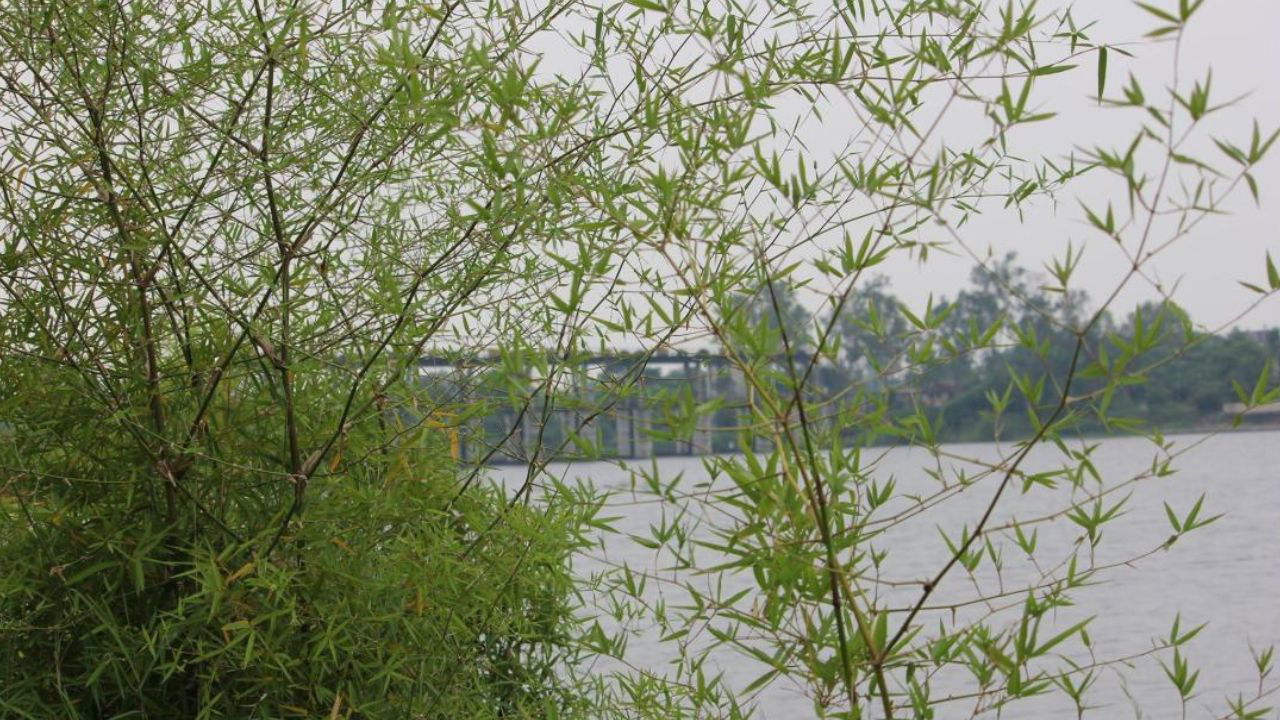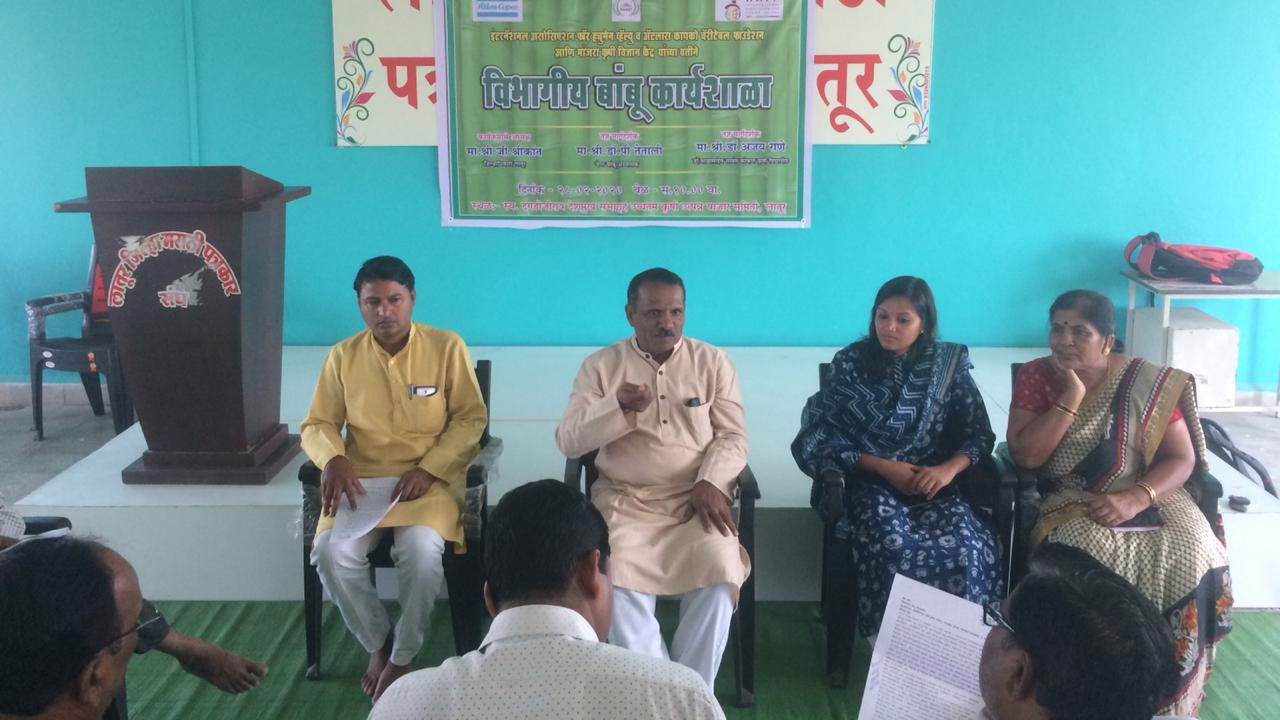
In India, unplanned agriculture is one of the main reasons for soil erosion and water runoff. All the silt gets accumulated in water bodies that over time and on a larger scale, affects the water storage capacity of the dams. Thus, the authorities are forced to release the water which disrupts their water planning. Importantly, we are losing the topsoil which is the healthiest, fertile and nutrient-rich layer of soil. “I save water, I save my soil and I make more money. It’s a gold plant for farmers like me,” says a farmer about bamboo.

One Solution to All Such Problems: Planting Bamboo
The Art of Living until now has distributed over 150,000 free bamboo saplings to the farmers. Bamboo is both a weed and a plant, and it is categorized as grass now, which means cultivators do not need permission to cut it. When you plant bamboo on a river basin it prevents excess water from entering the lands. It also helps in maintaining the ecosystem in such areas. It generates more oxygen as compared to other plants. One of the most important benefits of growing bamboo is that it treats wastewater. All the water that enters from industrial areas to the river can be treated with bamboo plantations.
Why do more farmers need to grow bamboo?
'Often, farmers feel they cannot make money from Bamboo but one can make good money from growing bamboo,” shares Mahadev Gomare, Art of Living project director and natural farming expert from Latur. “There are so many things you can do with bamboo. Bamboo is used in every sector be it power, construction, sustainability, fashion, interiors or any other. That's why the government has actively supported bamboo production. If you see the Bangalore airport uses bamboo worth thousands of crores. Also, for farmers, bamboo can give continuous income for many years to come. You only have to maintain it for the first 3 years and then it gives you returns for the next 50 years without using any fertilizer, pesticides etc.”

‘The Art of Living' did something unique and involved many local youths in making the saplings as part of its bamboo sapling drive, where it distributed over 150,000 free bamboo saplings to the farmers. “It is important that our youth stay connected to the roots. These youth then feel joyful when they see their contribution is helping the farmers prosper. A lot of these youth come to me with ideas of opening a farmer's collective and low cost set up which can help farmers who are growing bamboo', shares Mahadev Gomare.
He adds, “Youths have a lot of business ideas and many of them have the potential to be successful agricultural entrepreneurs. This Art of Living initiative is helping both the farmers and youth.”
“I have seen an increase in water levels in the borewell since I have planted bamboo,” shares Shantanu, a farmer from Maharashtra, “I have 500 trees growing over 10 acres of land and this will give me additional income every year once fully grown. So, I save water, I save my soil and I make more money. It’s a gold plant for farmers like me,” says Shantanu, a farmer.
So far, The Art of Living has trained 30 lakh farmers in India who now are armed with this ancient wisdom of reviving and reclaiming their agricultural lands from the clutches of MNC-sold fertilizers, genetically modified seeds, and pesticides. Even in draught-hit areas farmers who have adopted natural farming techniques are self-sustainable now, by practising climate-resilient farming.
















